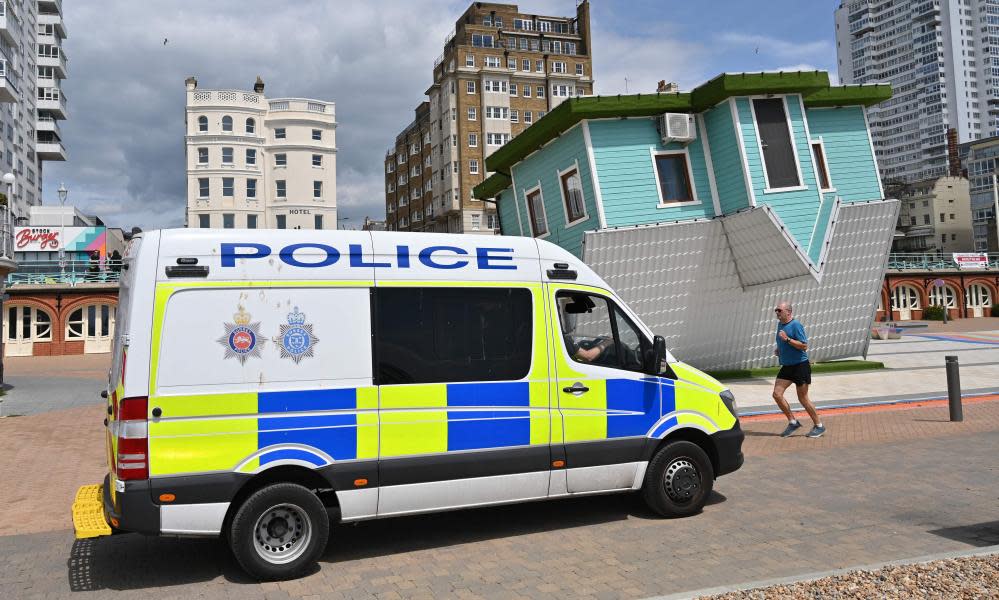Police in England and Wales face 'rising and complex' 999 calls

The police service in England and Wales is in danger of being overwhelmed by a surge in 999 calls driven by a lack of confidence in the non-emergency 101 line, a policing watchdog has warned.
HM Inspectorate of Constabulary found that 999 calls increased by 11% in two years, as the public made less use of the alternative number.
The study found that some forces were not answering calls to 101 within target times and did not always offer another way of making contact, leading the public to lose confidence in 101 and use 999 instead.
The police service set up the 101 number to take calls that could be dealt with not just by the police but by other organisations such as health, social care, housing and environmental services. But other organisations withdrew their support for 101 as their funding was reduced, the report said.
Phil Gormley, the inspector of constabulary, said: “Inconsistencies in how police forces respond to calls from the public need to be eradicated, or else they risk being overwhelmed by rising and increasingly complex demand.
“The control room is one of the engine rooms of a police force. If it doesn’t have the right systems and processes in place, the force won’t have an accurate picture of demand. This will affect its ability to respond to calls and investigate crimes effectively. It can also prevent the most vulnerable in society getting the help they need.”
Gormley said the police service needed to agree a standard for how quickly forces must respond to 999 calls.
The evidence for the report was gathered before the Covid-19 pandemic, which resulted in a drop in calls to emergency services during the lockdown period.
In the Sussex police force, over the year to March 2019 43% of 101 calls transferred to the contact centre from the switchboard went unanswered. In March 2019 there were 30,183 calls transferred to 101, and 45% were abandoned, equal to 12,905 calls.
In Cleveland, inspectors found instances of the control room diverting 101 calls to enquiry desk answerphones as a way for the force to manage the demand.
Some calls were being left on the answerphone overnight and sometimes over weekends and bank holidays without being responded to because enquiry desk staff were not on duty, the report said.
In addition, the inspectorate found police were taking more calls that involved vulnerable people, with forces dealing with mental health concerns and other complex problems, such as drug and alcohol dependency or homelessness.
As a result, call handlers took longer to deal with calls because they were trying to resolve complex problems over the phone.
The report said: “Cuts in other public services have shifted demands on to the police and other parts of the criminal justice system. Other organisations need to accept the public risk they have responsibility for when police resources are now so constrained that some forces are struggling to cope.”

 Yahoo News
Yahoo News 
